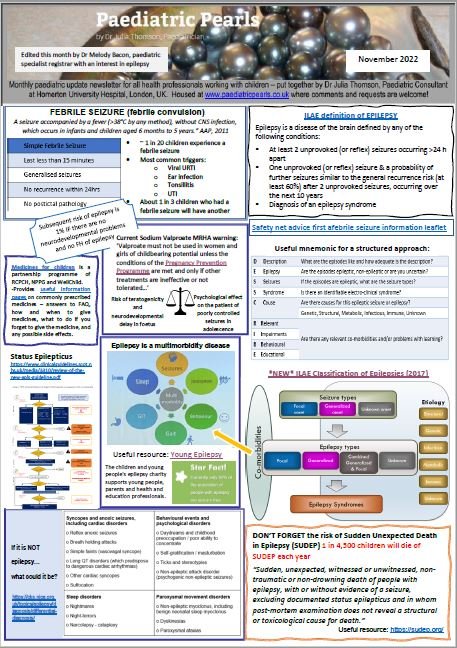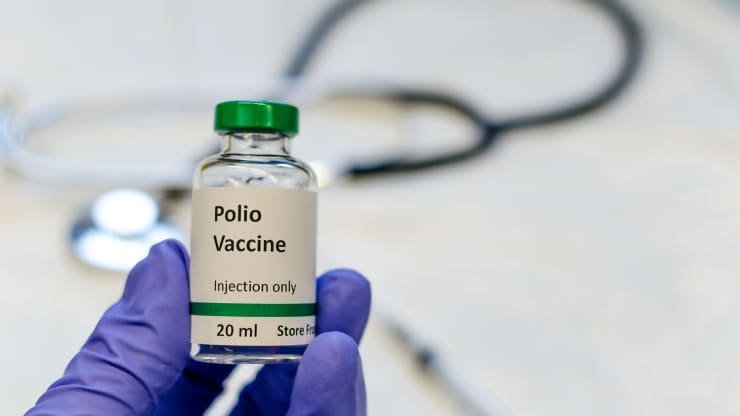This month’s newsletter is all about epilepsy, with thanks to one of the senior registrars working at Homerton currently who has a special interest in epilepsy. Useful updates and links. Please do leave comments below.


This month’s newsletter is all about epilepsy, with thanks to one of the senior registrars working at Homerton currently who has a special interest in epilepsy. Useful updates and links. Please do leave comments below.

A joint newsletter this month because I ran out of time during a house move. Timely information about the polio catch up plan in London, a video on how to persuade children to take pills, toxic shock syndrome, handle bar injuries and a reminder of July’s Quality Standard from NICE on Fever in the under 5s.

Useful resources in preparation for this year’s expected RSV bronchiolitis surge in this month’s newsletter. Also, a bit on managing young people who are “tired all the time”, height and weight issues in non face-to-face consultations and a short article asking why do we give children 10 days of foul tasting pen-V qds for tonsillitis instead of 5 days of tds amoxicillin which, it transpires, is actually cheaper? Microbiologists and others are welcome to leave comments below!

A visual guide to the most common food allergies this month and pointers to new guidance on when to introduce allergenic foods to babies. The EATERS history is useful in ruling out allergy and there’s a good mnemonic about soap to stop us all misdiagnosing penicillin allergy. Do leave comments below:
Managing Fever in Children with thanks to Dr Ranjev Kainth
Fever, both in primary and secondary care is a frequent presentation. Often, it is a sign of an illness and in the first instance, it is important to establish the most likely underlying causative factor. Once this has been determined, focus often turns to the management of the fever. Two recent articles in Archives highlight the varying practice amongst clinicians both in primary and secondary care.
In accordance with NICE guidelines1, the authors2-3 suggest anti-pyretics should not be used for the sole purpose of controlling fever. Agents such as paracetamol and ibuprofen are often administered to promote comfort in the child when there is fever. In such situations, children may be prescribed single or dual therapy.
In a systematic review, E.Purssell3 examines the evidence for combined anti-pyretic therapy with either paracetamol or ibuprofen alone. He concluded that ‘only marginal benefit was shown for the combined treatment compared with each drug individually which, taken alongside the risk of overdose and further increasing the fear of fever, suggests there is little to recommend this practice’.
With the real risk of parents being unable to accurately measure medication4, it is important clear guidance is given on when and what type of drug therapy is appropriate in clinical situations.
References: